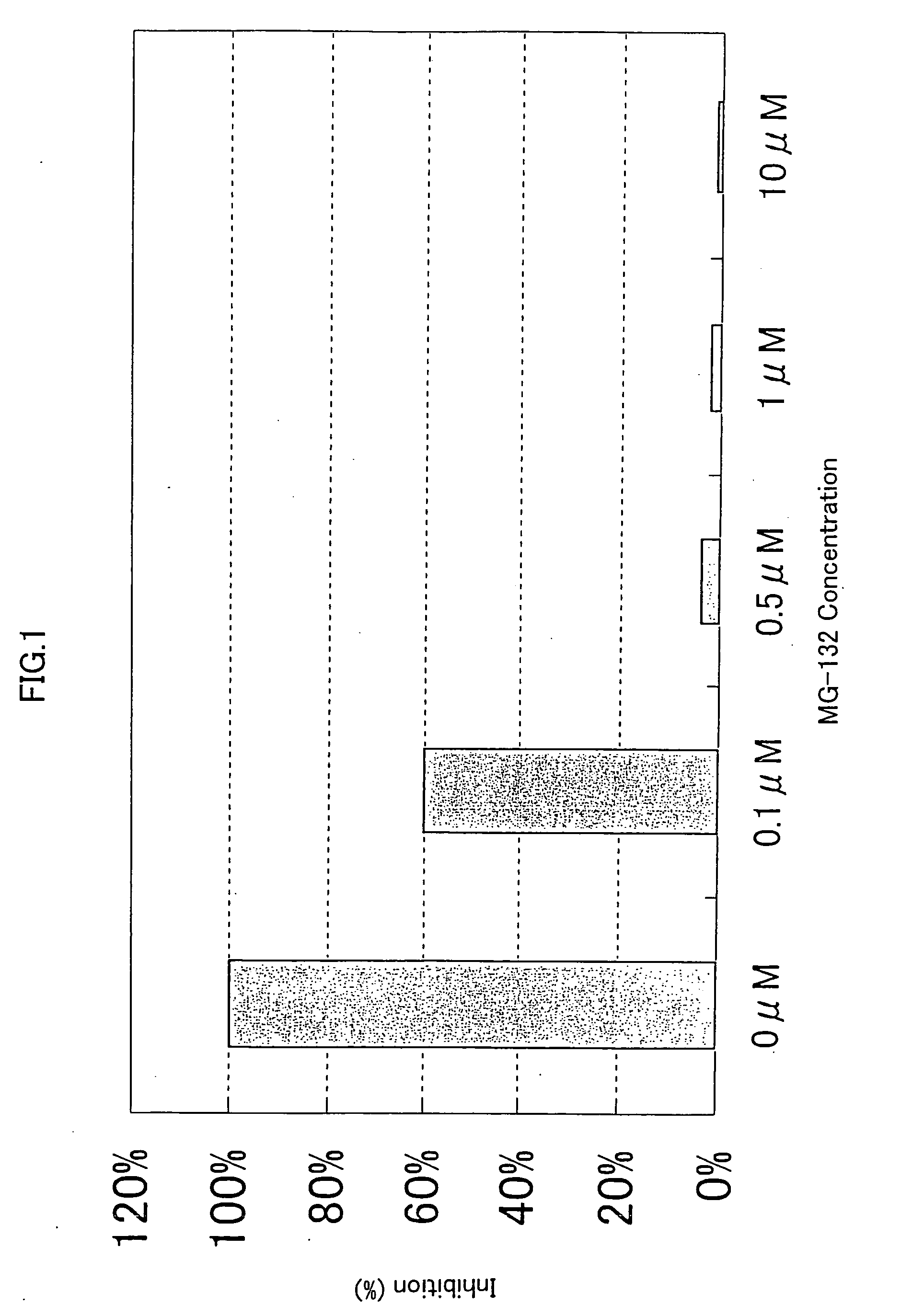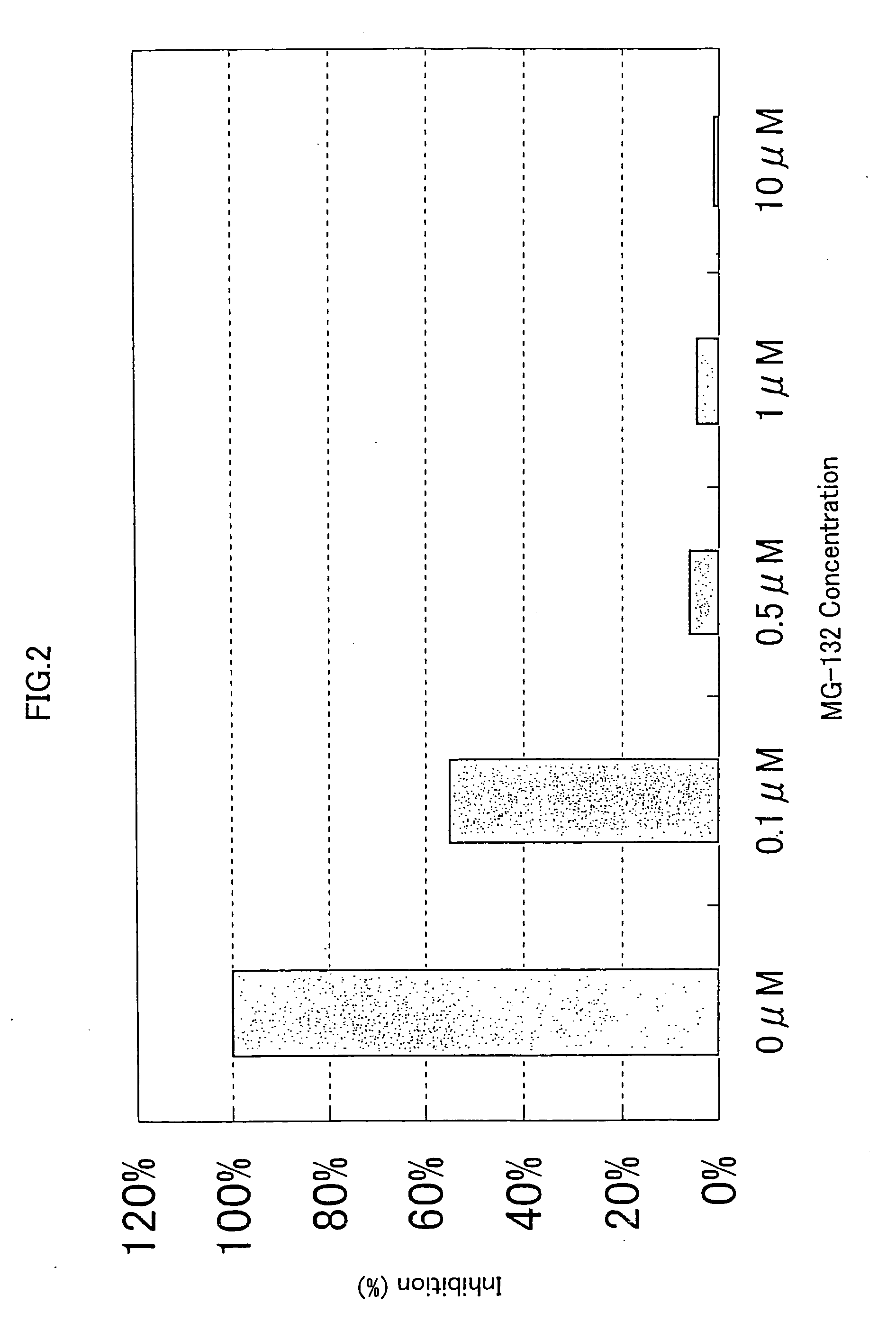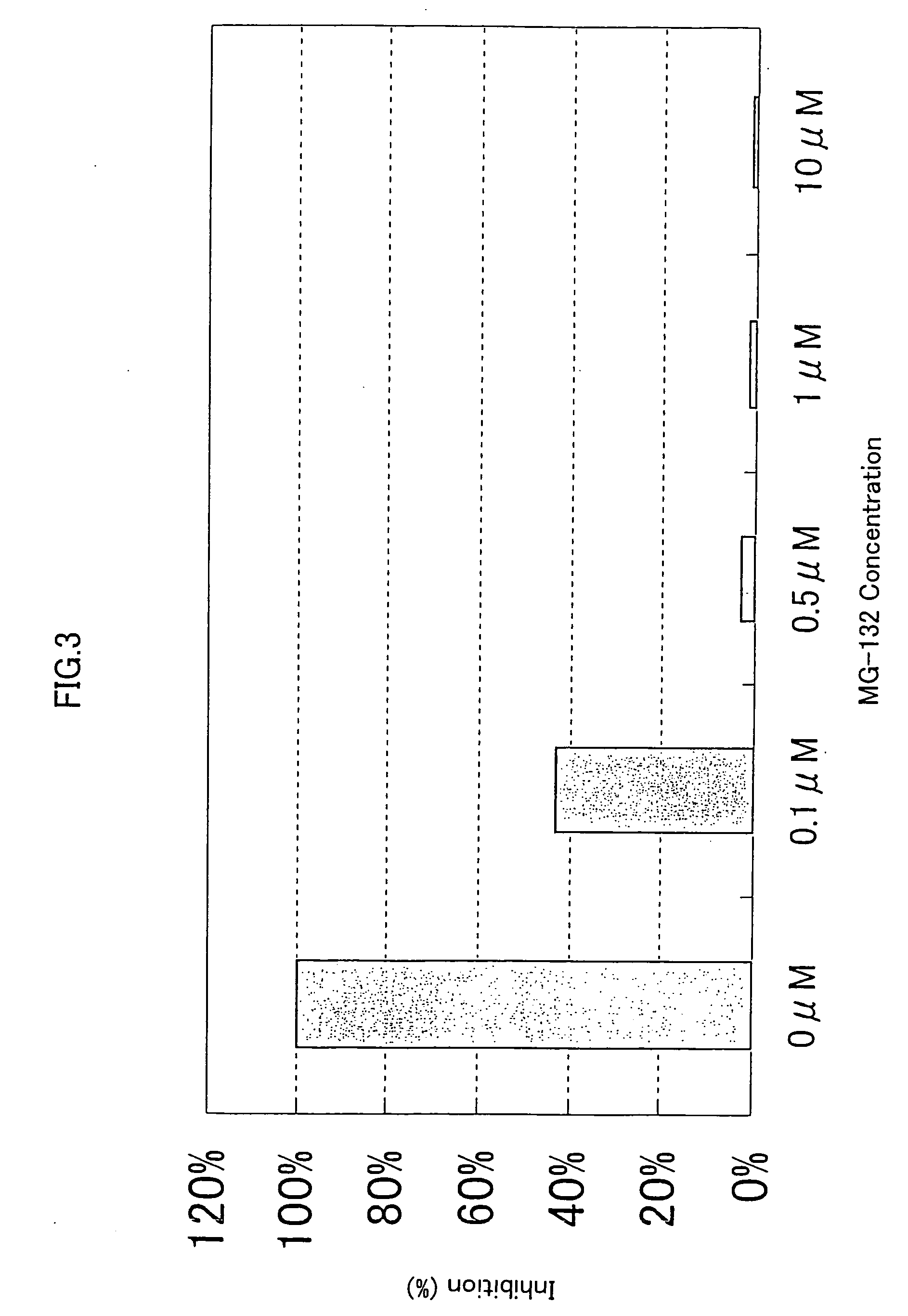NF-kappa B activating gene
a technology of kappa b and activating gene, which is applied in the field of protein, can solve problems such as difficulty in predicting their functions
- Summary
- Abstract
- Description
- Claims
- Application Information
AI Technical Summary
Benefits of technology
Problems solved by technology
Method used
Image
Examples
example 1
Construction of a Full-length cDNA Library Using the Oligo-capping Method Preparation of RNA from Human Lung Fibroblasts (Cryo NHLF)
[0301] Human lung fibroblasts (Cryo NHLF: purchased from Sanko Junyaku Co., Ltd.) were cultured according to the attached protocol. After repeating subculturing the cells to obtain fifty 10 cm dishes containing the resulting culture, the cells were recovered with a cell scraper. Then, total RNA was obtained from the recovered cells by using the RNA extraction reagent ISOGEN (purchased from NIPPON GENE) according to the manufacturer's protocol. Then, poly A+ RNA was obtained from the total RNA by using an oligo-dT cellulose column according to Maniatis et al., supra.
(2) Preparation of RNA from Mouse ATDC5 Cells
[0302] ATDC5, a cell strain cloned from mouse EC (embryonal carcinoma) (Atsumi, T. et al.: Cell Diff. Dev., 30: p 109-116)(1990) was repeatedly subcultured to obtain fifty 10 cm dishes containing the resultant culture. Thereafter, poly A+ RNA w...
example 2
Cloning of DNA Capable of Activating NF-κB
(1) Screening of the cDNA Encoding the Protein Capable of Activating NF-κB
[0305] 293-EBNA cells (purchased from Invitrogen) were grown to 1×104 cells / 100 μl / well in a 96 well plate for cell culture for 24 hours at 37° C. (in the presence of 5% CO2) using 5% FBS containing DMEM medium. Then, 50 ng of pNFκB-Luc (purchased from STRATAGENE) and 2 μl of the full-length cDNA expression vector prepared in above Example 1.(4) were cotransfected into the cells in a well using FuGENE 6 (purchased from Roche) according to the manufacturer's protocol. After 24 hours of culture at 37° C., the reporter activity of NF-κB (luciferase activity) was measured using long-term luciferase assay system, PIKKA GENE LT2.0 (TOYO INK) according to the attached manufacturer's instructions. The luciferase activity was measured using Wallac ARVOTMST 1420 MULTILABEL COUNTER (Perkin Elmer).
(2) DNA Sequencing
[0306] The above screening was carried out for 155,000 clone...
example 3
Screening Compounds Inhibiting NF-κB Activation
[0309] 293-EBNA cells were seeded on 5% FBS containing DMEM medium in a 96-well cell culture plate to a final cell density of 1×104 cells / 100 μl / well, and cultured for 24 hours at 37° C. in the presence of 5% CO2. Then, 50ng of the expression vector comprising the gene encoding NF-κB activating protein of SEQ ID NO: 5, 9, 17, 21, 35, 37, 41, 53, 57, 63, 67, 71, 75, 81, 87, 91, 93, 97, 121, 123, 129, 154, 158, 162, 168, 170, 172, 176 or 178, and 50 ng of the reporter plasrnid pNFκB-Luc were cotransfected into the cells in a well using FuGENE 6. After 1 hour, the proteasome inhibitor MG-132 (purchased form CALBIOCHEM) (Uehara T. et al., J. Biol. Chem. 274, p. 15875-15882 (1999); Wang X. C. et al., Invest. Ophathalmol. Vis. Sci. 40, p. 477-486) was added to the culture to final concentrations of 0.1 μM, 0.5 μM, 1.0 μM and 10 μM, respectively. After 24 hours of culture at 37° C., the reporter activity was measured using PIKKA GENE LT2.0. T...
PUM
| Property | Measurement | Unit |
|---|---|---|
| temperature | aaaaa | aaaaa |
| temperature | aaaaa | aaaaa |
| temperature | aaaaa | aaaaa |
Abstract
Description
Claims
Application Information
 Login to View More
Login to View More - R&D
- Intellectual Property
- Life Sciences
- Materials
- Tech Scout
- Unparalleled Data Quality
- Higher Quality Content
- 60% Fewer Hallucinations
Browse by: Latest US Patents, China's latest patents, Technical Efficacy Thesaurus, Application Domain, Technology Topic, Popular Technical Reports.
© 2025 PatSnap. All rights reserved.Legal|Privacy policy|Modern Slavery Act Transparency Statement|Sitemap|About US| Contact US: help@patsnap.com



